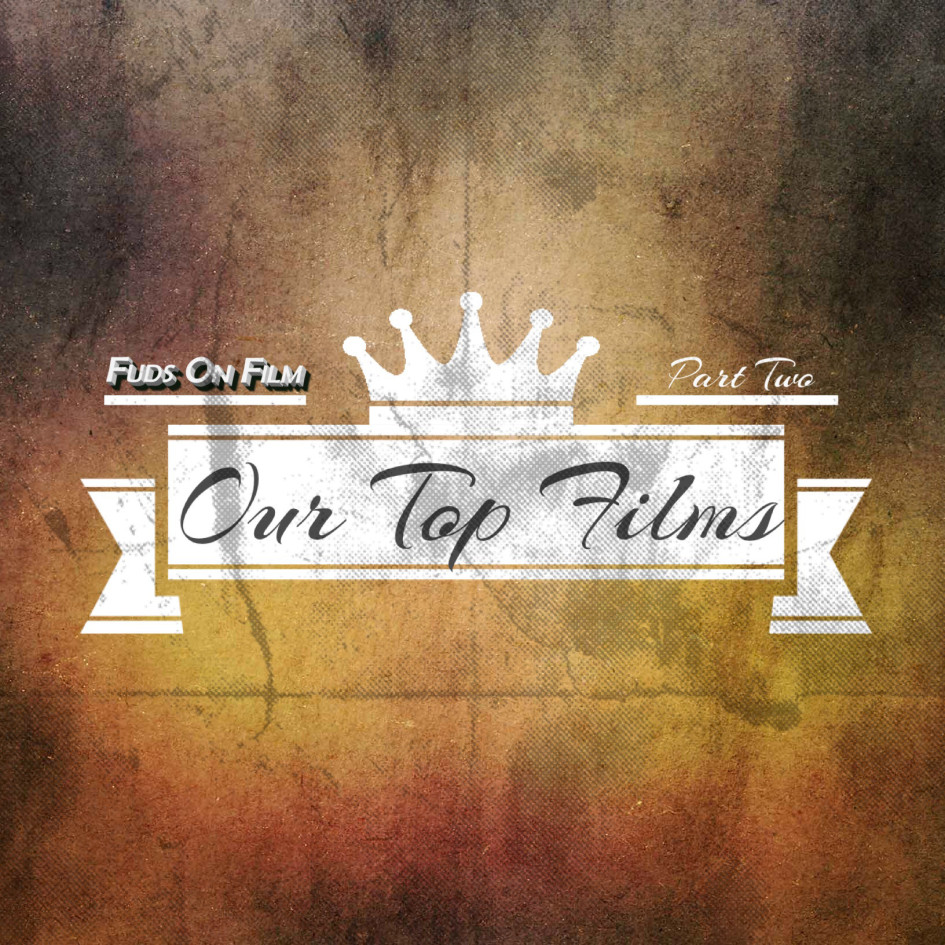Ladies and gentlemen, children of all ages, welcome to the second part of our rundown of our favourite films. For those who didn’t catch the first part, we’re giving you a taste for the sort of films we like to give you some idea where our tastes lie before striking off into more focused areas.
First up in this podcast is Amélie, Jean-Pierre Jeunet’s charming slice of magical realism about a young Parisienne’s quest to make other people happy, and her eventual realisation that she should be looking for love herself. Beautifully shot, with bold stylistic flourishes, perhaps the most remarkable thing in the film is its creation of drama in a world where, essentially, only nice things happen. Audrey Tautou excels in a film that is, quite literally, wonderful. It’s one of the happiest and most uplifting films you could hope to see.
The polar opposite comes to us from South Korea’s Chan-wook Park, as the first of his loose Vengeance trilogy Sympathy for Mr. Vengeance bleakly assaults us. Following a young deaf-mute man’s trials in obtaining a kidney transplant for his younger sister, this starts off in a pretty dark place then progressively turns off any light source it can find in an unrelenting spiral of escalating retribution that’s a riveting watch, not despite but because of the overwhelming grimness of it all. Oldboy is a more accessible film for sure, but this remains Park’s most memorable calling card and a powerful, uncompromising movie that pushes the limits of the emotions cinema can explore.
Shifting gears again back into the gloriously enjoyable, Studio Ghibli and Hayao Miyazaki bring us Laputa: Castle in the Sky, a tale of mysterious girls, mysterious crystals, sky pirates, also mysterious, and floating castles, which some would describe as mysterious. A beautiful and imaginative story with all of the charm, wit and adventure we’ve come to expect from Ghibli, it’s a fabulous slice of animation that captures the wonder of childhood much better than anything western animation has managed. You can apply much of what we’ve said above to near enough any Ghibli film, and indeed stuff this entire list full of them, so if for some crazy reason you haven’t explored their back catalogue you ought to get on that immediately.
The Big Lebowski needs, I hope, no introduction or recap, particularly because there’s really no recap of the Coen Brothers’ buffoon noir that comes close to explaining how endlessly enjoyable this film is. With such richly imagined and realised characters, and powerhouse performances from Jeff Bridges and John Goodman as well as a flawless supporting cast, there’s no moment in this tightly scripted homage cum parody of noir films that’s not amusing, and it has somehow found the trick of remaining funny on repeat viewing. A masterpiece of comic character interaction and humour resulting from a singularly unqualified hero blundering into a plot he’s not equipped to deal with.
If you want to talk about action movies, you shouldn’t be able to talk for long without hitting upon John Woo’s HK action masterpieces, of which we’ve picked Hard Boiled as a representative sample. With all of Woo’s rightly lauded choreography and body count, we join hard-boiled cop Chow Yun Fat taking on the mob, along the way butting heads with undercover cop Tony Leung in the ludicrously over-the-top, ludicrously energetic and enjoyable action. With numerous set-piece shootouts, all of which eclipse anything Hollywood was able to muster then and certainly is able to muster now, Woo’s run from the mid/late eighties to the early nineties is as good as it got for gun-based mayhem.
We round off the list with, arguably, the greatest film about organised crime yet made, Goodfellas. Ray Liotta’s Henry Hill relates his life of crime to us, from his childhood entry into the firm, rise up the chain and eventual downfall as he goes behind his superior’s back with a drug dealing operation, although it’s not really the details of his activities that are of most interest here. That would be his interaction with fellow gangsters Tommy DeVito and James Conway, played by Joe Pesci and Robert De Niro. It’s not unreasonable to argue that none of the leads have been better, and Scorsese’s pacing is pitched perfectly. Powerful and enjoyable watching, and perhaps its masterstroke is its refraining from passing obvious judgement on its subjects. It shows the seductive glamour of the life of crime, along with possible horrendous consequences, and lets you draw your own conclusions on the validity of their actions and character.
Now, we could have easily talked about three times as many films for six times as long, but I’m sure we’ll cover most of those as we run through our list of upcoming topics. If you’ve any suggestions for future topics, or if you just want to berate us for missing off your personal favourites, please feel free to comment below, or hit us up on Twitter (@fudsonfilm), on Facebook (facebook.com/fudsonfilm), or email us at podcast@fudsonfilm.com.
We’ll see you folks next time, as we dive into the works of Clint Eastwood both behind and in front of the camera. Expect that to land on the 1st of September. To keep you happy until then, we’ll have one of our Intermission episodes with an arbitrary selection of film reviews with you on the 20th of August, and a very special treat on the 10th of August as we deliver a commentary for Scorsese’s Goodfellas, the stone cold mobster classic. Until then, take it easy, folks.


Leave a Reply